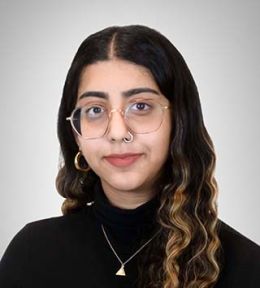Kaplan Institute Team Building Event
Are you an Illinois Tech student looking to discover job opportunities in the world of startups, research, and tech innovation? Our team building initiative is your gateway to connect with dynamic startups, cutting-edge researchers, and forward-thinking faculty. This is your chance to explore how your ideas can turn into real-world business opportunities!
Whether you’re a student, post-doc, alum, or faculty member, this program has something for you. Get ready to pitch your ideas, network with industry leaders, and collaborate on exciting projects. Plus, you’ll be contributing to the Accelerating Research Translation (ART) program’s (sponsored by the National Science Foundation) mission of bringing research to life and building a diverse, talented workforce.
Don’t miss out on this incredible opportunity to learn, connect, and grow! This event will take place on Wednesday, November 6, from 5–7 p.m. in the Kaplan Institute.
What do you get out of this program?
Benefits for students: Dive deeper into your favorite tech fields and join the conversation! Show off your business savvy and academic skills by asking sharp questions and sharing ideas on customer discovery, market penetration, competitive analysis, and business models. Network with industry leaders and top researchers. You might even find exciting partnership opportunities, depending on the needs and dynamics of the startups and researchers involved.
Benefits for researchers, entrepreneurs, and technologists: Highlight your groundbreaking work and explore new business opportunities through lively discussions with students. Network with passionate students and talented alumni. Discover potential collaborations in academic studies, business partnerships, or even join the Kaplan Institute’s Pitch Tank Competition for a chance to shine.
Meet the pitchers and their research
Mohammad Heidarinejad: This project focuses on improving the efficiency of outdated steam radiator systems found in older buildings. By utilizing modern building controls and addressing overlooked areas like steam trap diagnostics, it aims to enhance the performance of these vintage systems.
Samer Khanafseh: TrustNav tackles the growing threat of GNSS spoofing attacks by developing a system that uses auxiliary sensors and patent-pending algorithms to detect and counter spoofed signals. It ensures accurate, real-time protection for navigation systems, safeguarding them from potential security breaches.
Marwan Omar: This project leverages GPT-2’s deep learning capabilities to detect vulnerabilities in C/C++ source code. By training the model on large datasets and fine-tuning it for vulnerability detection, the system provides real-time security insights, integrating seamlessly into development environments to enhance software security.
Maurice Dawson: GUARD, an AI-powered cybersecurity solution that enhances threat detection and response by using advanced machine learning to monitor network traffic and identify malicious behavior in real time. Designed for industries with critical data security needs, it provides adaptive learning, detailed insights, and scalable integration for businesses of all sizes.
Ben Garber: C+UP offers a solution for heavy-emitting industries to reduce carbon emissions by converting CO2 into valuable chemicals like propane and ethylene. Developed in Professor Mohammad Asadi’s lab at Illinois Tech, this high-efficiency electrolyzer uses renewable electricity and earth-abundant materials, allowing industrial plants to decarbonize without costly retrofits.
Matthew Smith: In-sense aims to use insects as remote sensors for sustainable agriculture, helping balance pesticide use and increase crop yields. With a prototype camera trap and on-device deep learning, the system detects and classifies insect behavior, integrating data with environmental factors to support better agricultural decision-making.
Sonja Petrović: This AI monitoring solution ensures continued compliance with safety standards such as IEEE SA CertifAIEd and NIST AI RMF. Built on statistical analysis and a common baseline, it easily adapts to different industries, providing ongoing trustworthiness monitoring across various use cases.
Bhoopesh Mishra: Aqua Avaani addresses water resource utilization inefficiencies by transforming waste into clean water. The technology utilizes a sustainable carbon-composite hydrogel, made from biomass waste like spent coffee grounds, to effectively break down contaminants, promoting environmental health and reducing water scarcity.
Ian Brown: This research introduces wound field synchronous machines as an alternative to rare earth permanent magnet motors in e-vehicles. Advanced control algorithms for current and torque regulation have been developed.
James Mann: The project aims to develop a low-cost, energy-efficient process for manufacturing high-silicon electrical steel sheets (Si content > 4.5 percent) for e-motor laminations. The Hybrid Cutting Extrusion (HCE) process facilitates the production of various Fe-Si alloys, enhancing motor efficiency for OEMs and tier 2 E-motor manufacturers.
Questions? Please contact startupstudio@kaplan.iit.edu.
RegisterEvent Contact


